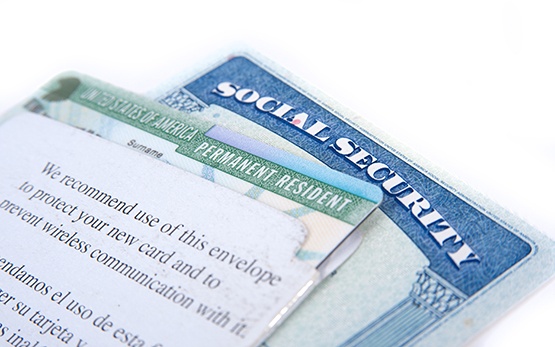
Among Americans, the term “green card” is used to refer to a document that indicates lawful permanent residence in the United States. Despite changing colors over time, its original color has always been green. Citizens and immigration services in the United States are responsible for issuing green cards. This is known as a Permanent Resident Card.
US immigration officials grant green cards to thousands of immigrants every year based on certain strict requirements. Among those requirements are:
- Residents of the U.S. or relatives of U.S. citizens
- You are offered a job by American employers
- A large amount of money was invested in a U.S. company
- You can win diversity visas if you win the lottery
- For more than one year, you have lived in the U.S. as a refugee, asylee, or asylee
- An immigrant from a special category may belong to more than one category.
What Should You Expect When You Receive the Actual Card?
You will not receive a permanent resident card upon approval of your permanent residency application. In order to enter the U.S., immigrants need an immigrant visa, and the visa will be stamped on their passports with an I-551 temporary stamp.
A letter of approval will be provided by the U.S. government when immigrants adjust their status with the country.
In each case, the Green Card is sent by mail several weeks after it has been approved.
Some Rights and Limitations Come With A Green Card

The U.S. offers green cards to those who wish to immigrate permanently. Many government jobs are only open to citizens of the United States with a green card. Additionally, those who obtain a green card benefit from healthcare, education, and other services.
The spouse and unmarried children of your priority relative can file for a green card as well, but they will have to wait a few years since annual limits apply to such visas.
Whether you decide to become a citizen of the United States may be a matter of personal choice.
People who have lived with and married a U.S. citizen for three years get a green card for three years; most green card holders get five years.
You do receive some degree of security from a green card, but it is not completely reliable. In Section 237 of the Immigration and Nationality Act (INA), deportability is made possible for many different reasons, such as committing a crime or breaking the law, not informing USCIS of a change of address, or doing anything else that matches one of those grounds.
Thus, green card holders who leave and attempt to return to the country may be ineligible for entry under Section 212 of the I.N.A. This is especially important for those who leave the country for more than six months and commit crimes abroad.
The Green Card is Valid for a Period of Ten Years
Green cards used to not have expiration dates, but now USCIS requires that you reapply every ten years. You do not need to worry, your permanent residence card will not expire, only your card that proves your residency.
If, however, your green card doesn’t expire when the expiration date approaches, you may encounter issues with USCIS if it discovers that it won’t be able to issue your green card.
Green cards are subject to a ten-year age limit, while conditional residents (who obtain their status through investment or through marriage with an American citizen) are subject to a two-year age limit. By the expiration of that card, a person’s legal status can be revoked in the United States. Conditional residents need to submit Form I-751 (for marriage-based cases) or I-829 (for investment-based cases) 90 days in advance of their status expiring in order to become permanent residents.










